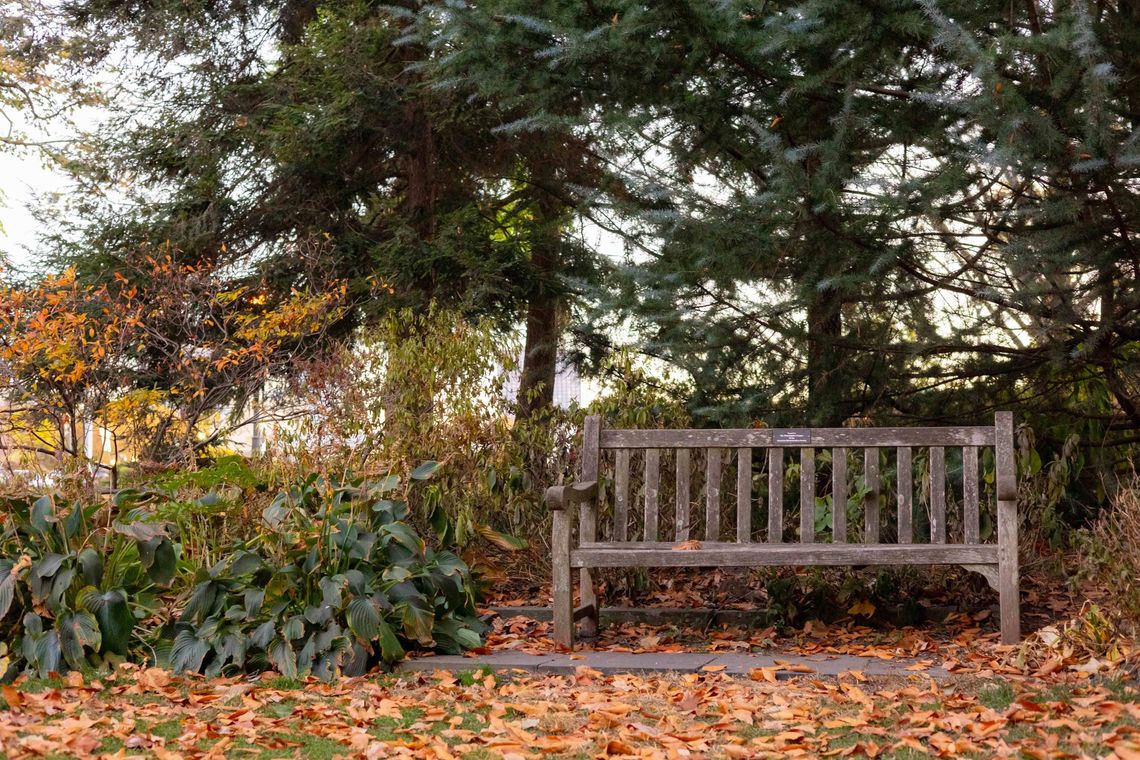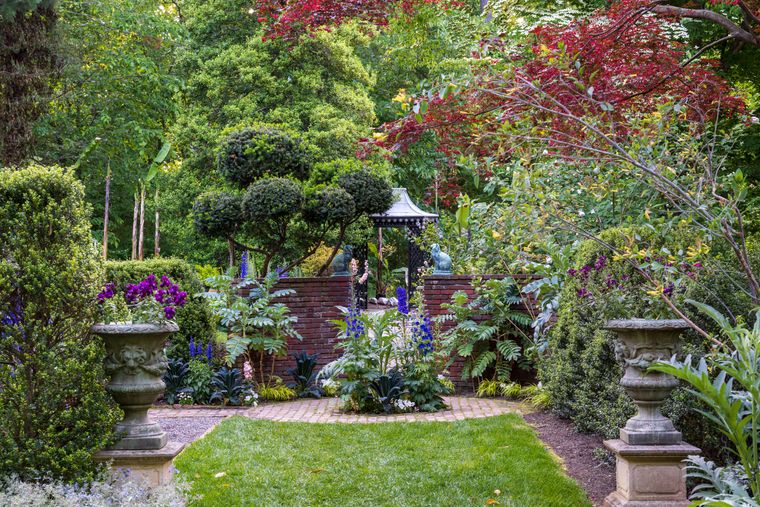
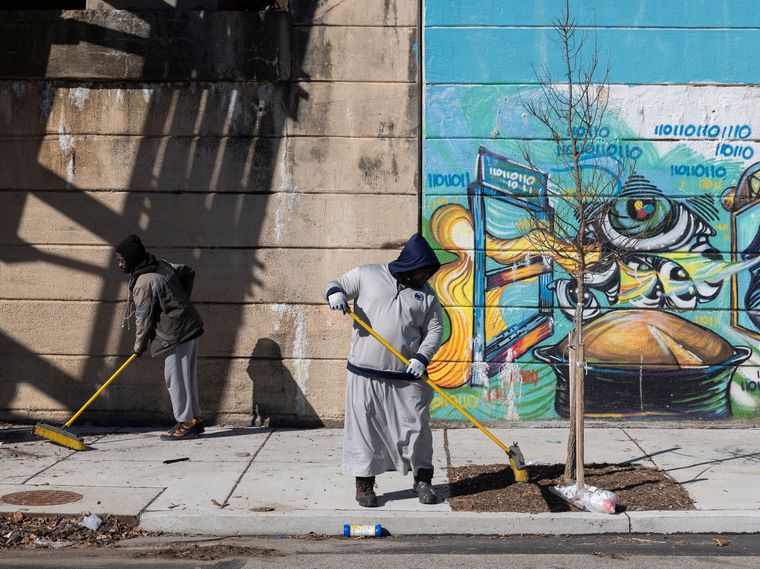
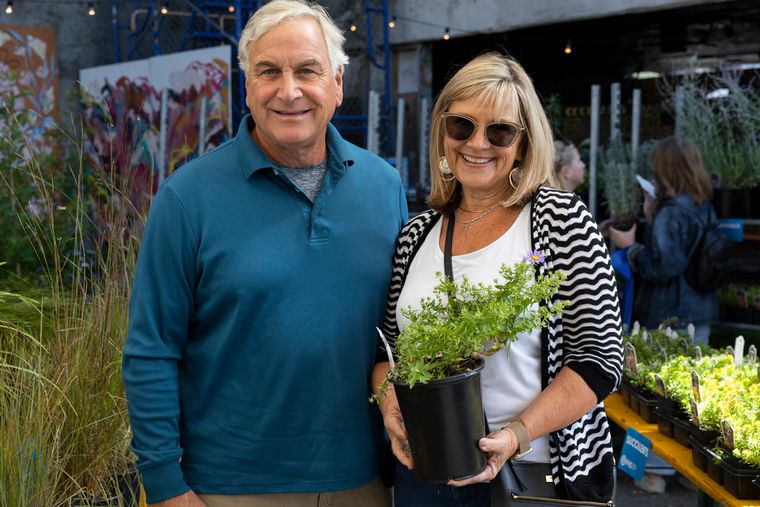
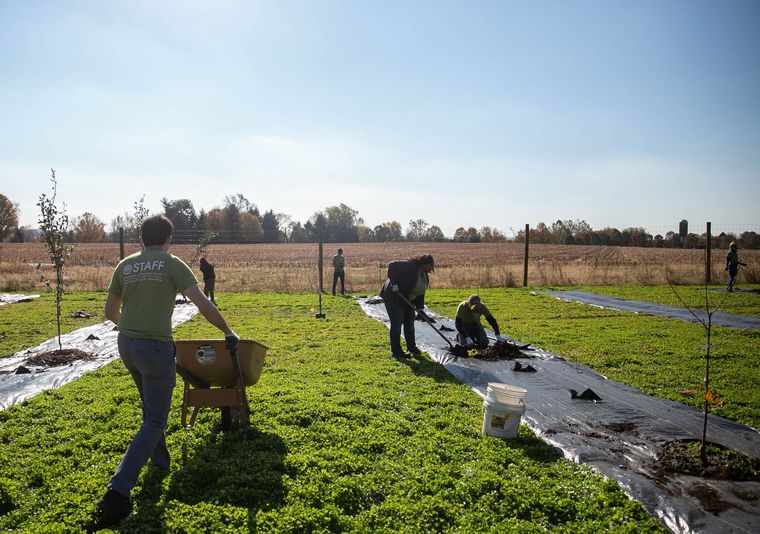
Composting 101
sustainable gardening
gardening projects

By Will Sulahian
Waste is a prevalent issue all around the world. How can we reduce what we discard and contribute to the health of our planet? Common eco-friendly practices like recycling and reusing materials help with reducing carbon footprint, but there are other simple ways that natural waste can be returned to nature. The Pennsylvania Horticultural Society recommends the simple action of composting to help reduce waste, nourish your garden, and create a healthier environment for all.
The Problem
According to the Environmental Protection Agency, 146.1 million tons of waste — packaging, yard trimmings, furniture, clothing, bottles, cans, newspapers, electronics, and food — were put in landfills in 2018, with food scraps and yard waste making up 30%, the largest percentage of what we throw out. Decomposition releases methane, a potent greenhouse gas that traps heat in the atmosphere. Methane gas contributes to smog and can worsen health problems including asthma.
The Solution
With so much organic material that can be composted, a great first step to reducing landfill waste is to use this “trash” and turn it into something that can help you grow a bountiful garden. Composting is helpful for gardens, as it introduces microorganisms that promote plant growth. “When I use compost in my garden, I rarely have to fertilize my plants,” says Sally McCabe, Associate Director of Community Education at PHS. “The microorganisms from the compost make my soil and plants much healthier.”
What to Compost: Green and Brown
Not all waste can be composted! One best practice to ensure your compost is healthy is to use a mix of green and brown waste. Brown waste is high in carbon and can include things like leaves and twigs. Green waste is high in nitrogen and includes grass clippings, fruit, and vegetable scraps. Together, these make up the main components of compost.
Getting Started
Learn about the different methods of composting to determine which process you would like to begin. The three most common composting methods include:
Aerobic: Pick a dry and shady spot near a water source. Gather green and brown organic waste and start by alternating layers into your bin or pile. Every few weeks, turn your pile from the center out with a shovel or pitchfork to aerate it. McCabe recommends that you turn and mix frequently. “Turning and mixing your compost is essential because it reintroduces oxygen and moisture, which helps the microorganisms break down the waste into nutrients.” Every compost bin is different, but when used often, it should be turned once a week. Compost gives off heat as it breaks down, so a cool bin is an indicator that it's ready to be turned. Once the bottom of the pile is dark and rich brown, it is ready to use.
Anaerobic: This method breaks down organic material without introducing oxygen, making this a slower process. Dig a hole, add your organic materials, and cover it with soil. Note: You’ll have to dig it up to see if the process is complete.
Vermicomposting: This method uses aerobic composting with worms in a bin. It is faster than aerobic composting and produces less odor. Begin with brown waste, then add green kitchen scraps. Purchase red worms locally or online and let them do the work!
What Not to Compost
There are also some materials that gardeners should avoid, such as meats, processed foods, bread, onions, or garlic. These can attract pests that pose a threat to your compost bin, and some of these materials do not interact well with compost microorganisms.
Let PHS Guide You
Composting is an easy way to give back to the environment and improve the plants that you grow in your garden. Let PHS help you get started with our informative webinars, workshops, Gardener’s Blog, and resources.
Create access to fresh food through at-home food gardening. Learn how PHS is promoting this practice through our Community Gardens program.

